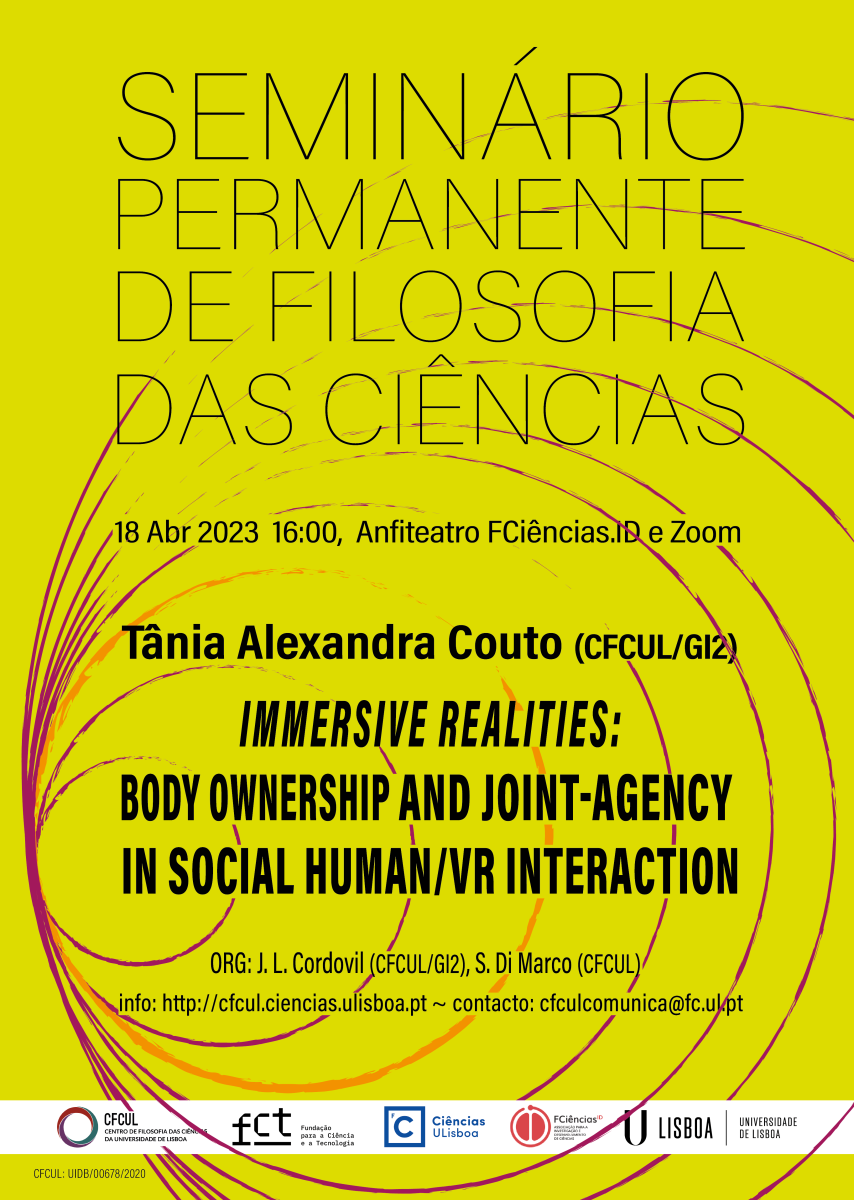Por Tânia Alexandra Couto (CFCUL/GI2).
Purpose of Review: We provide the outlook on the definition, laboratory research, and applications of virtual reality (VR), intending to understand how the sense of self, body ownership, and agency interact between human and artificial agents and how different levels of depersonalization (DP) traits might shape these interactions in a hyper digitalized world.
Recent Findings: Previous research has been highlighting the potential of virtual reality as a tool to facilitate the embodiment phenomena and the sense of presence. Moreover, extensive literature claimed the promising role of VR in supporting cognitive and behavioral change interventions.
Summary: Metaverse has inspired us to conceive a future with accessible virtual reality devices helping in different aspects of daily life, but little is known about how interactions with artificial agents such as avatars might impact our human mind and social lives; and how a sense of self and embodiment phenomena facilitated by VR interact to ameliorate DP symptoms and other comorbid symptoms.
Transmissão via Zoom (pw: 865292).




















